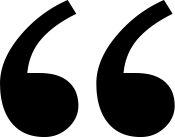
David Scullion worked in an accounting software company when his boss encouraged him to learn Salesforce, as a way to productively pass the time. However, what David found was a platform that will change his career for the better. It’s been 10 years and he hasn’t looked back since.
A decade into his journey with Salesforce, David managed to obtain several certifications and is working towards acquiring more. In his experience, he found out that the foolproof way to pass exams every time is finding a learning method that works best for you. Read on to find out more about his methodology and pick up some valuable tips along the way.
My name is David Scullion, I’m a Senior Salesforce Administrator for News Corp Australia. My role is focused mainly around the administration of our biggest org, which is 1500 users. I’m doing a combination of BAU work and project implementations, working with 3rd party vendors to deploy changes, document those changes, and prepare deployments for production.
How and why did you get started with Salesforce?
I started with Salesforce 10 years ago. I was working for an accounting software company that purchased Salesforce to manage their marketing. My director at the time thought that I didn’t have enough to do, so he suggested I should start learning it. I started from there and just fell in love with the platform.
What was the most challenging part of learning Salesforce?
The most challenging part of using Salesforce is the ease in which you can make changes. You can back yourself into a corner quickly, which I learned quite late. But when you become more experienced and more certified you take a bit longer to do things and understand the architecture, and you make good decisions instead of average ones.
The more you become experienced and certified, you take longer to do things. You understand the architecture better before making good decisions.

What certifications have you achieved so far?
I have 6 certifications now: I have Administrator, Advanced Administrator, Platform App Builders, Sales Cloud Consultant, Service Cloud Consultant, and Community Cloud Consultant.
Which certification was the last one that you took and what was the most difficult part of that specific certification?
The last one I took was Community Cloud certification, but probably the most difficult one for me will still be the Advanced Administrator. The depth of the knowledge required is extensive and a lot of things that they test you, you may not necessarily use in your day to day role. A lot of theory is involved in this specific certification.
Do you plan to achieve more certifications in the future?
Yes, I have my pyramid of architecture drawn out. I’m looking forward to working towards Systems Architect and maybe Application Architect too. I’m working on which is the best one to do next, probably Platform Dev I, then I want to start moving up those and see how far I can go.
What tips and advice do you have for others who are in a process of learning and preparing for Salesforce certification?
My advice would be: practical experience is very important, unless you are an extremely good studier and memorizer. Do practical things, especially when you study for consultant certifications. Find a method that works for you. Everyone studies differently – find the right way for you and take exams because they are important for YOUR progress in the Salesforce world.
How did Focus on Force study guides and practice exams help with your preparation?
I’ve found the practice exams (that I’m using a lot) amazingly helpful. The fact that you could study and test yourself on one part of the exam and keep going until you get it right. By doing that methodology, I was able to do all the practice exams every time. I felt more confident moving into the main exams because I have a better understanding of the questions they’re going to ask.
The practice exams are amazingly helpful. You can set out to test yourself on one part of an exam at a time and keep going over it until you get it right. By doing that methodology, I passed the practice exams every time. I felt more confident going into the main exam because I have a better understanding of the questions.

Were the practice exams helpful for your preparation?
I find the Focus on Force practice exams a little more difficult than the actual exam, which is a great thing. Because before you go into the real exam, you already worked harder at the practicing stage. I find the practice exams really valuable.
What advice do you have for someone that wants to start a Salesforce career?
Trailhead is the place to start — it’s very good free learning. But if this is what you want to do as a career, you need to get certified. It shows your depth of knowledge across the product. But becoming certified is not as easy as everyone thinks it is. So, finding a good source of practice questions and study guides like Focus on Force is a key part of the puzzle as well as the practical experience.
If this is what you want to do as a career, certification is what matters. But becoming certified is not easy, so finding good sources of practice questions and study guides like Focus on Force is a key part of the puzzle.

What Certification are you studying for now?
Focus on Force currently provides practice exams and study guides for sixteen certifications













